1. Never Ask a Man’s Past
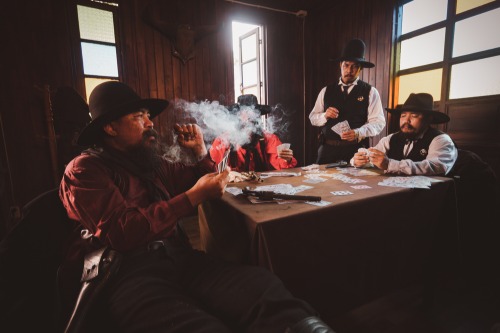
On the frontier, a man’s past was his business, and prying into it was a quick way to start a fight, according to Yallogy. Many men came West to escape debts, crimes, or personal failures, and the code dictated that you judged a man by his present, not his history. Asking too many questions about where someone came from could make you seem suspicious—or worse, like a lawman. If someone volunteered information, that was one thing, but pressing for details was a serious breach of etiquette.
The West was a land of second chances, and a man’s deeds spoke louder than his name or past mistakes. This unspoken rule helped create a sense of trust in a world where paperwork and background checks didn’t exist. It also meant that many people, including notorious outlaws, could reinvent themselves simply by moving to a new town. As long as a man pulled his weight and didn’t stir trouble, his past stayed buried.
2. Don’t Take More Than Your Share
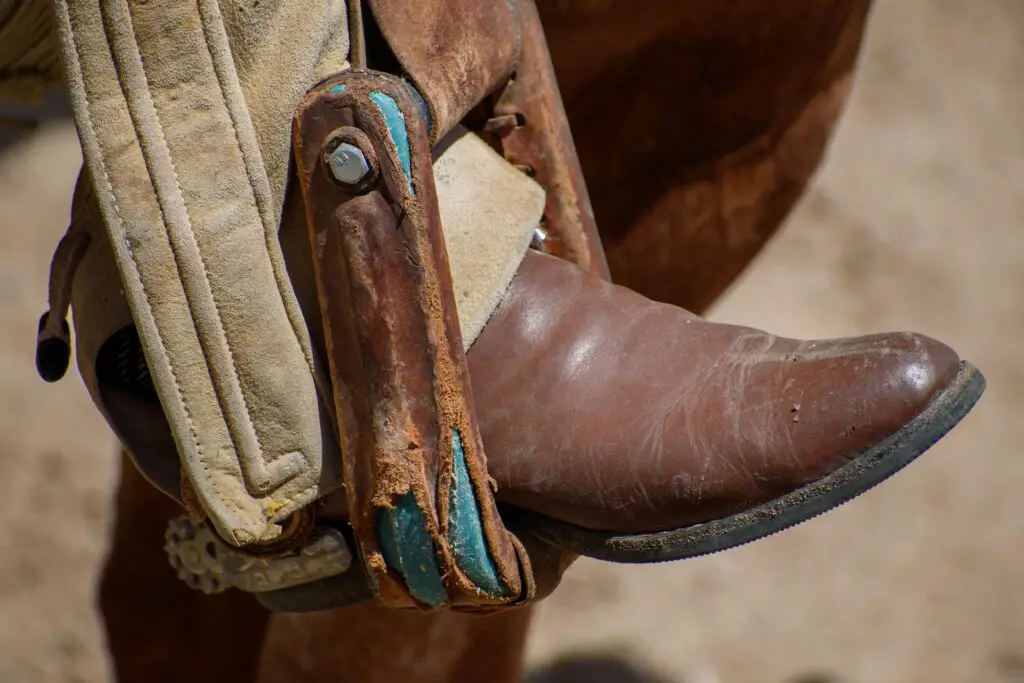
Resources were scarce on the frontier, and greed was one of the fastest ways to lose respect. Whether it was food, land, or supplies, taking more than your fair share was seen as both selfish and dangerous. A man who hoarded while others suffered would find himself with no allies when times got tough. The unwritten rule was simple—take what you need, but leave enough for others.
This was especially true when it came to hunting and fishing. Over-hunting an area or clearing out all the game left nothing for the next traveler or settler. The frontier way of life depended on balance, and those who upset it often found themselves unwelcome. If you took too much, you weren’t just hurting yourself—you were hurting the whole community.
3. Never Ride Another Man’s Horse Without Permission

On the frontier, a man’s horse was as vital as his gun—sometimes even more so. Taking another man’s horse without asking was the equivalent of stealing his car today, but worse, because it could leave him stranded miles from help. While horse theft was a hanging offense in many places, even borrowing one without permission was a serious insult, according to the Cowboy Showcase. Trust was everything, and assuming you had the right to another man’s mount was an easy way to lose it.
If you absolutely had to take a horse—say, in a life-or-death situation—you were expected to leave a note and return it as soon as possible. Some even left money or supplies as a sign of goodwill. But generally, if you touched another man’s horse without his say-so, you were picking a fight. And on the frontier, not all fights ended with just words.
4. Keep Your Word—No Matter What
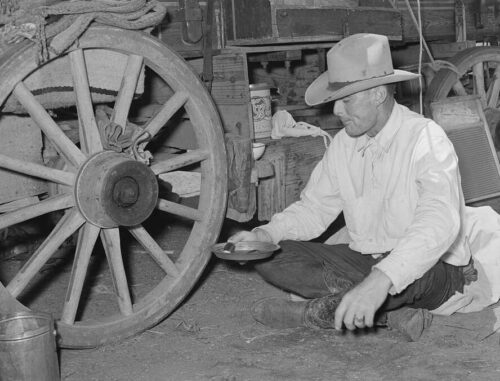
A frontiersman’s word was as binding as any contract, and breaking a promise could ruin your reputation for good, according to the Gene Autry Website. Without legal systems to enforce agreements, a man’s integrity was his currency, and people remembered those who didn’t keep their word. If you promised to deliver goods, pay a debt, or meet someone at a certain time, you’d better follow through. Failing to do so could mean losing business, allies, or worse—earning a reputation as a liar.
Trust was hard to come by, and those who broke it didn’t last long on the frontier. Many deals were sealed with a handshake, and backing out was considered downright dishonorable. If circumstances made keeping a promise impossible, an honest explanation was expected. But outright deception? That was the kind of thing that could get a man run out of town.
5. Respect the Watering Hole
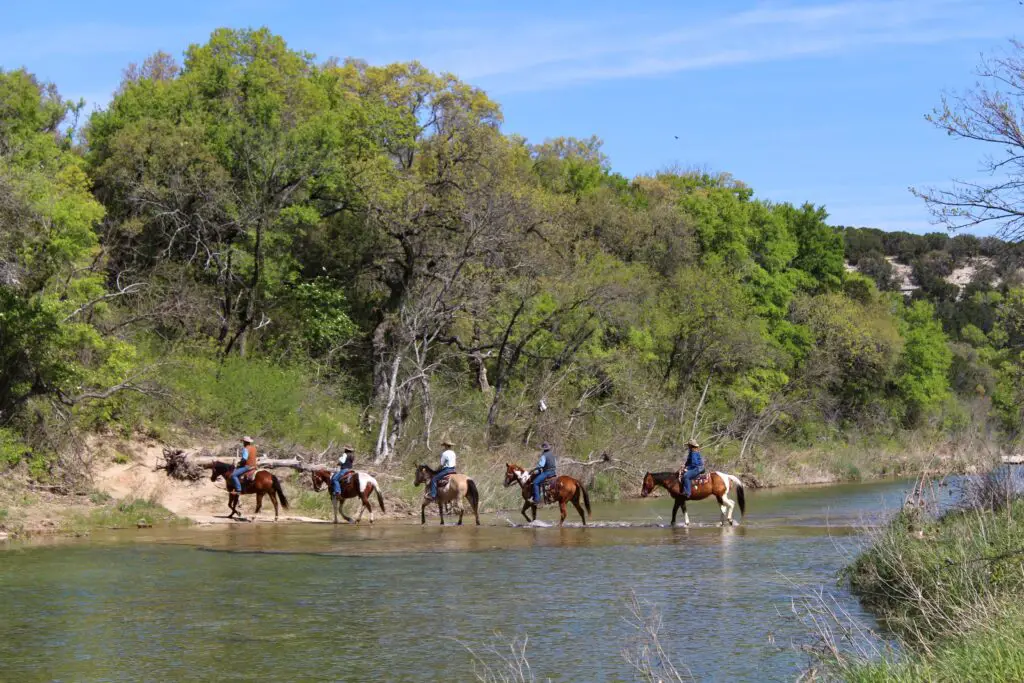
In the harsh frontier landscape, a reliable water source was sacred, and fighting over one could quickly turn deadly. Whether it was a river, a spring, or a shared well, no one had the right to hoard or poison it. Travelers and settlers alike understood that clean water was life, and denying it to others was a grave offense. It didn’t matter if you were enemies—if a man was dying of thirst, you gave him a drink.
This rule extended to how water sources were treated. Bathing, washing clothes, or letting animals drink upstream from where others drew water was seen as disrespectful. Polluting a watering hole wasn’t just inconsiderate—it was dangerous, and people took it personally. On the frontier, a reckless act like that could turn an entire community against you.
6. Never Shoot an Unarmed Man

Despite what Hollywood might show, real frontiersmen had a strict sense of honor when it came to fighting, Legends of America explains. Shooting an unarmed man was seen as cowardly and could make you a target for revenge. Gunfights, when they did happen, were usually between armed men who both knew what they were getting into. Killing someone who wasn’t a threat was a fast way to destroy your reputation.
If a dispute couldn’t be settled with words, fair fights were expected. Some men would even offer their enemy a weapon before a duel to keep things honorable. This rule wasn’t just about fairness—it was about maintaining some level of order in an otherwise rough world. Even outlaws followed it because a reputation for dishonor could turn even allies against you.
7. Don’t Overstay Your Welcome
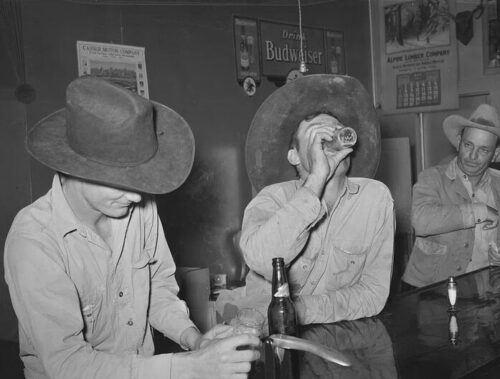
Hospitality was a big deal on the frontier, but so was knowing when to leave. When someone offered you food and shelter, it was expected that you’d be on your way as soon as you were rested. Lingering too long, especially without pulling your weight, was seen as taking advantage of kindness. A guest who wore out his welcome could find himself unwelcome all across the region.
This rule was about respect—respect for resources, space, and a host’s generosity. It was also practical, as most frontier families had just enough to support themselves. A good guest might chop some wood or help with chores before moving on. But someone who lounged around too long could expect to be shown the door, one way or another.
8. Help Your Neighbor—Even If You Don’t Like Him
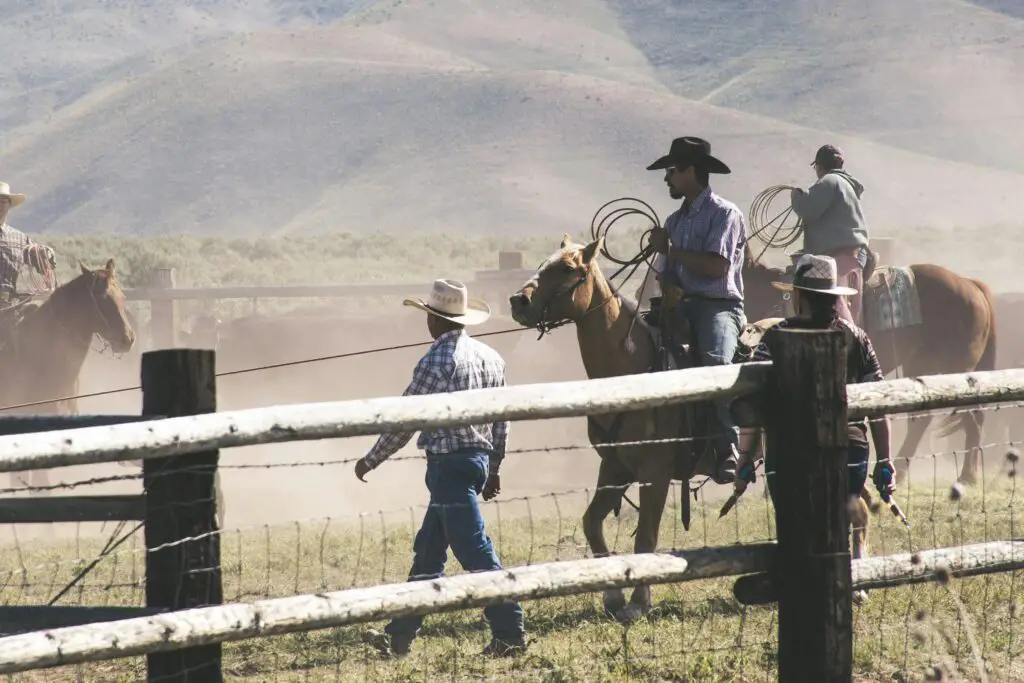
Life on the frontier was hard, and even enemies had to put aside differences in times of crisis. If a man’s barn caught fire or his cattle escaped, it didn’t matter if you’d been feuding for years—you still helped. The understanding was that survival depended on mutual aid, and holding a grudge at the wrong time could hurt everyone. Even the most stubborn frontiersmen knew that refusing to help could backfire when they needed help themselves.
This didn’t mean you had to be best friends, just that common decency came first. A man who refused to lend a hand during an emergency was seen as untrustworthy. And once you were labeled selfish, good luck getting help when you needed it. The frontier had a long memory for those who failed their neighbors.
9. Don’t Mess With Another Man’s Traps
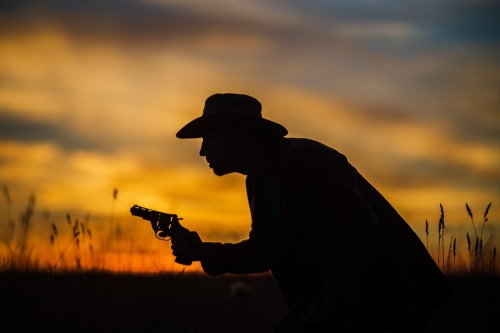
For trappers and hunters, setting traps wasn’t just a way to make a living—it was survival. Stealing an animal from another man’s trap was considered just as bad as stealing his horse. Trappers relied on their hard-earned skills and patience to secure food and trade goods, and messing with someone’s set traps was like robbing them blind. If you got caught tampering with another man’s catch, you’d better be ready for a fight.
This rule wasn’t just about money—it was about respect for the effort that went into surviving on the land. Traps were often marked, and experienced frontiersmen knew how to recognize who they belonged to. Taking from someone else’s trap was not only dishonorable but also a quick way to make dangerous enemies. Even among outlaws, stealing from a trapper was considered a dirty move.
10. Know When to Keep Your Mouth Shut

Loose talk could get a man in trouble fast on the frontier, and wise men knew when to hold their tongues. Spreading rumors, bragging too much, or badmouthing the wrong person could put a target on your back. In towns where justice was often handled personally, saying the wrong thing to the wrong person could get you shot. A frontiersman’s code demanded that you spoke only when necessary and didn’t stir up trouble.
This rule also applied to keeping secrets—especially those concerning other men’s business. If someone confided in you or you overheard something sensitive, you were expected to let it die with you. Snitches and gossips didn’t last long in a world where grudges could be settled with a bullet. If you weren’t sure whether to speak, the safest bet was always to stay quiet.
11. Always Share Your Fire
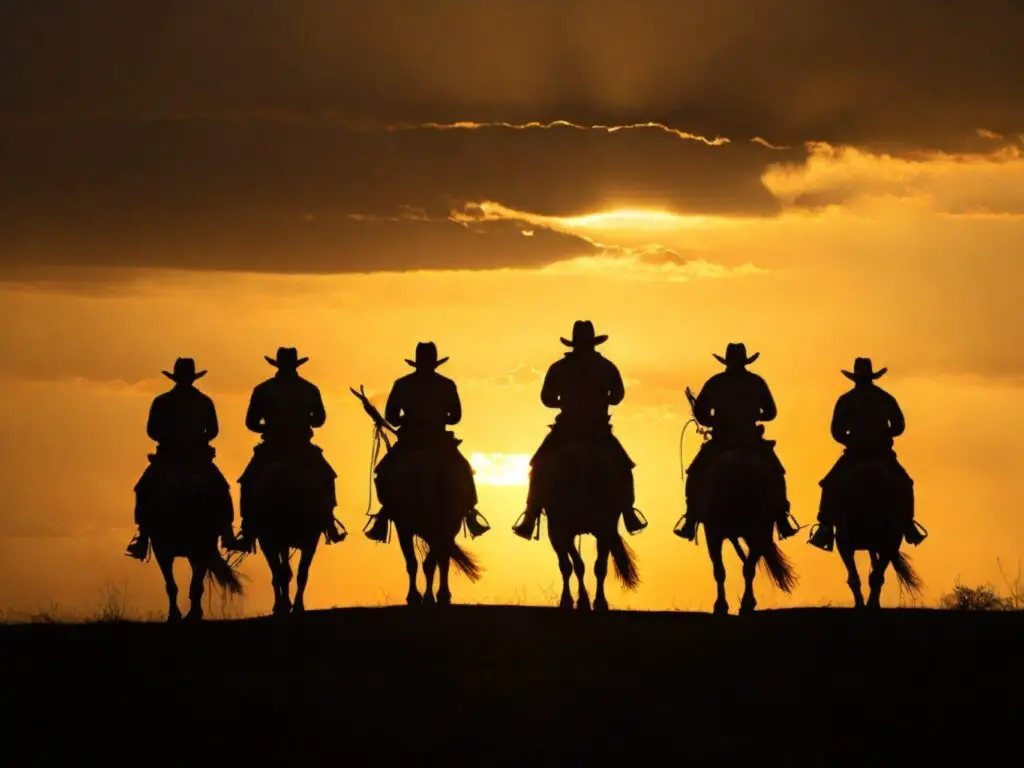
A warm fire could mean the difference between life and death on the frontier, and refusing to share yours was downright cruel. If a stranger showed up cold and hungry, the expectation was that you’d let them warm up, no questions asked. Denying someone a seat by your fire wasn’t just rude—it could make you an enemy fast. In a land where temperatures dropped dangerously at night, a little generosity could save lives.
This rule also extended to food and shelter in extreme conditions. Even if you didn’t trust a passerby, you were still expected to offer the bare minimum of hospitality. This didn’t mean you had to roll out the red carpet, but refusing aid to someone in dire need could ruin your reputation. A man known for his selfishness wouldn’t find much help when he needed it himself.
12. Never Leave a Man Behind
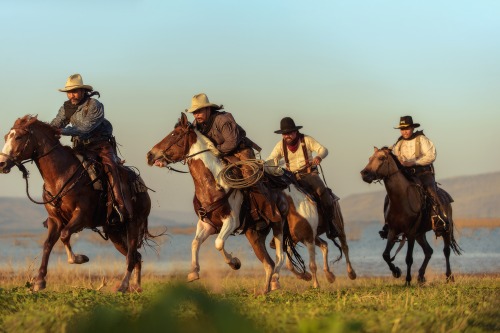
Out in the wilderness, abandoning someone could be a death sentence, and frontiersmen took this rule seriously. If a man was injured, lost, or stranded, it was understood that you did whatever you could to help. Even enemies would sometimes put aside their differences if it meant saving a life. No one wanted to be left for dead, so leaving someone behind was considered one of the worst betrayals.
This rule extended beyond just emergencies. If a man was down on his luck, helping him get back on his feet was seen as the honorable thing to do. A little generosity today could mean getting help when you needed it tomorrow. On the frontier, survival wasn’t just about being tough—it was about knowing you could count on others when it mattered most.
13. Don’t Draw Unless You Mean It
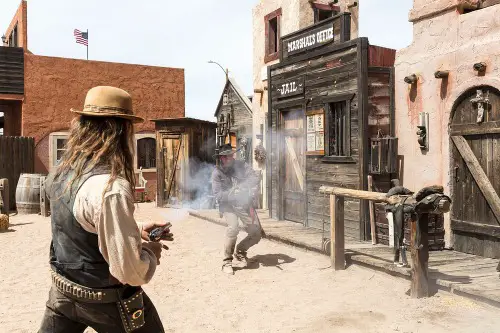
On the frontier, drawing your weapon was never a bluff—it was a commitment. Pulling a gun, even in anger or warning, signaled that you were ready to use it. Doing so without intent was seen as reckless and could lead to serious consequences, including getting shot yourself. It wasn’t just a matter of bravado—it was about respecting the gravity of violence.
This rule helped prevent unnecessary bloodshed in a place where tempers could flare and justice was often personal. A man who pulled his gun for show quickly earned a reputation for being unstable or dangerous. Frontier towns didn’t have room for hotheads looking to intimidate others. If you couldn’t control your hand, you were seen as a threat to everyone around you.
14. Keep the Trail Clean
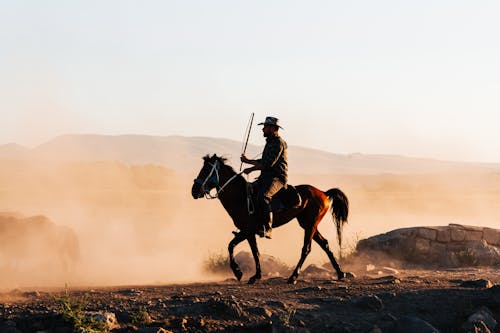
Leaving trash or damage along shared trails and campsites was a serious offense in the eyes of a true frontiersman. The unwritten rule was simple: leave the land as you found it, or better. Whether it was a firepit, horse tether, or abandoned gear, careless behavior created problems for the next traveler. Respecting the wilderness meant maintaining it for everyone’s use.
Not cleaning up after yourself was seen as a sign of laziness and disrespect. Trails were lifelines through rugged country, and their condition could mean survival or disaster. A man who didn’t clean up after himself wasn’t just rude—he was making life harder for the next soul trying to get through. On the frontier, stewardship of the land was a shared responsibility.
15. Know Your Place at the Campfire
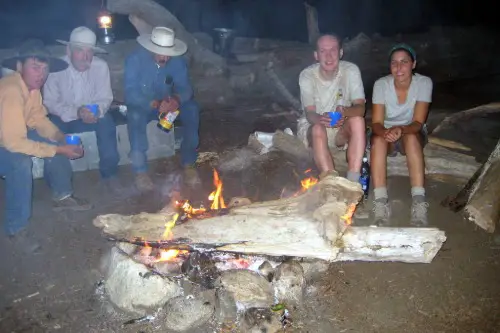
Campfire culture came with its own set of unspoken rules, and knowing where to sit—and when to speak—mattered. Elders or leaders usually took the central spots, and younger or newer members waited their turn. Interrupting or dominating the firelight conversation was seen as a breach of respect. Everyone got their time to speak, but listening was just as important.
The fire wasn’t just for warmth—it was where plans were made, news was shared, and wisdom was passed down. Acting like you owned the campfire could turn others against you quickly. A man who knew when to speak and when to stay quiet earned respect without saying much. Around the fire, humility went a lot farther than swagger.
16. Be Ready to Ride at First Light
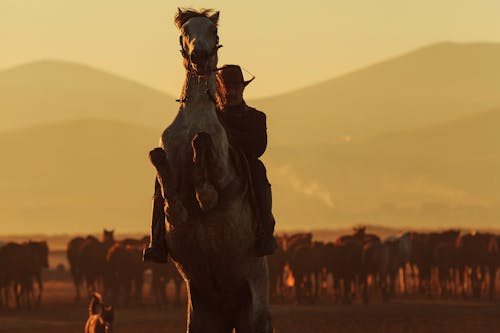
On the frontier, mornings were sacred, and dawdling at dawn was a mark against your character. If you traveled in a group, you were expected to have your gear packed, your horse saddled, and your coffee drunk by sunrise. Making others wait on you was seen as selfish and unprepared. Time mattered when weather, terrain, or danger could turn a day sideways.
This rule wasn’t just about punctuality—it was about discipline and survival. The early hours were the safest and most productive for movement, especially in hot or hostile territory. A man who was always ready when the sun rose earned the trust of those around him. But the one who slowed the group? He was often left behind.
17. Carry Your Own Weight

Every frontiersman was expected to contribute, no matter how small the group or task. There were no freeloaders on the trail—everyone chopped wood, fetched water, or helped cook. If you couldn’t ride hard, shoot straight, or build a shelter, you’d better be good at something else. Dead weight was a danger, not just a nuisance.
Even in emergencies, you were expected to try. A man who didn’t at least make an effort to help himself quickly lost the respect of his peers. Skill levels varied, but effort and attitude mattered more. On the frontier, dependability meant everything, and laziness wasn’t just frowned upon—it was a liability.
18. Mind the Wind When You Speak
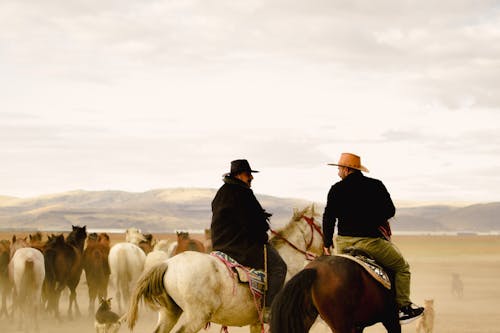
On the open range, voices carried farther than you might think, and careless words had a habit of reaching the wrong ears. Speaking ill of someone behind their back could come back fast—and sometimes with a bullet. The code was simple: if you wouldn’t say it to a man’s face, don’t say it at all. Gossip wasn’t just messy—it was dangerous.
Even whispering around a campfire didn’t guarantee privacy, especially with sharp-eared scouts or rival groups nearby. Loose talk could start feuds, provoke ambushes, or ruin reputations. The best frontiersmen chose their words like they chose their path—carefully, and with a view of the risks. A smart man always assumed someone else was listening.
19. Respect the Dead—Even Your Enemies
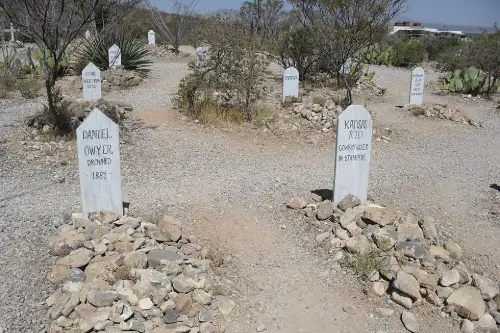
Death was common on the frontier, but disrespecting the dead was still taboo. Whether a man died in a fair fight or from snakebite, burying him properly was considered an obligation. Even enemies were given at least a shallow grave and a few words. Letting a body rot in the sun was seen as barbaric—and those who did it were remembered for all the wrong reasons.
This rule was less about sentiment and more about honor. A man’s final rest mattered, even if he’d been your rival in life. Skipping this ritual showed a lack of humanity and put you outside the code. On the wild edge of civilization, dignity in death was one of the few things everyone still agreed on.
20. Don’t Invite Trouble After Dark

When night fell on the frontier, tensions ran high—and wise men knew better than to stir the pot. After sundown, the rules of civility tightened, not loosened. Loud arguments, heavy drinking, or flashing weapons could lead to chaos when visibility and judgment were both poor. Trouble that started after dark often ended in bloodshed.
That’s why many towns had unspoken curfews or quiet hours, especially in saloons and camps. A man who couldn’t hold his liquor or his temper at night was seen as a threat to everyone. Keeping the peace after sunset wasn’t just courteous—it was survival. On the frontier, bedtime wasn’t just about rest—it was about keeping things from going sideways.
This post The Forgotten Code of the American Frontiersman—20 Rules You Didn’t Know Existed was first published on American Charm.


